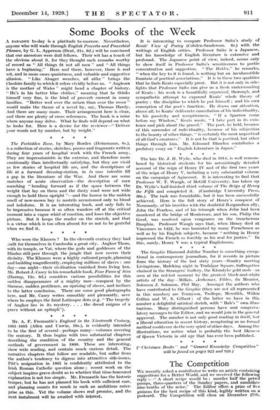It is interesting to compare Professor Saito's study of Keats'
View of Poetry (Cobden-Sanderson. Os.) with the writings of English critics. Professor Saito is a Japanese, but his knowledge of English literature is extensive and profound. The Japanese point of view, indeed, seems only to show itself in Professor Saito's sensitiveness to poetic concentration and suggestion. " The Hokku," he remarks, " when the key to it is found, is nothing but an inexhaustible fountain of poetical associations." It is in these two qualities that he finds Keats especially great. But it is not only in side- lights that Professor Saito can give us a fresh understanding of Keats : his work is a beautifully organized, thorough, and sympathetic attempt to expound Keats'. whole theory of poetry ; the discipline to which he put himself ; and his own conception of the poet's function. He draws our attention, above all, to Keats' deliberate cancellation of his individuality, to his passivity and receptiveness. " If a Sparrow come before my Window," Keats wrote, " I take part in its exis- tence and pick about the gravel." The poet, he held, because of this surrender of individuality, because of his subjection to the beauty of other things, " is certainly the most unpoetical of all God's creatures." It is not he that is poetical, but other things through him. Mr. Edmund Blunden contributes a prefatory essay on " English Literature in Japan."












































 Previous page
Previous page